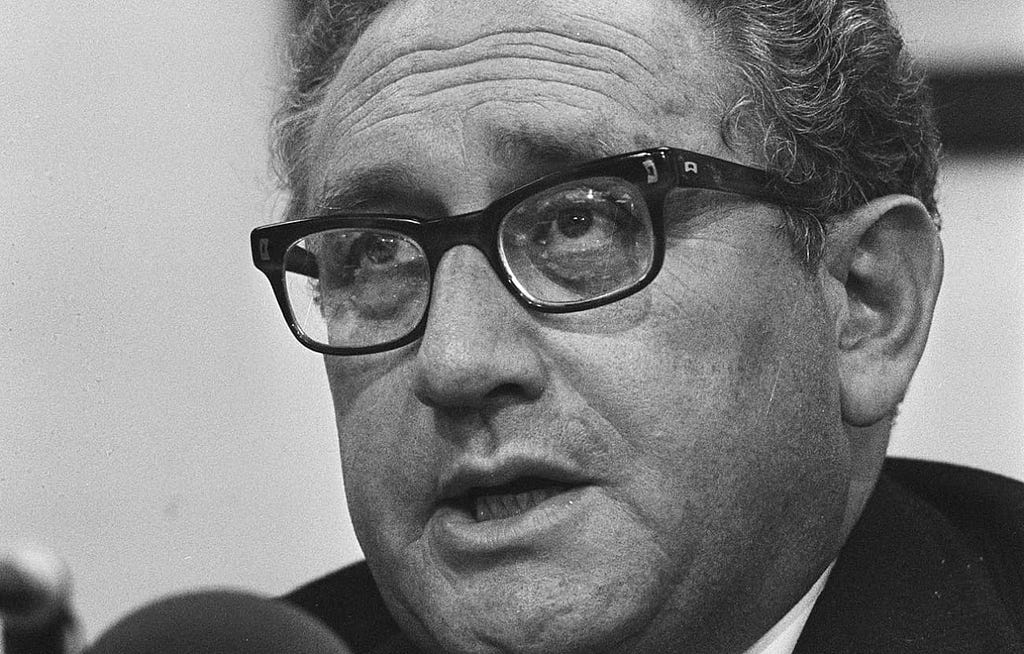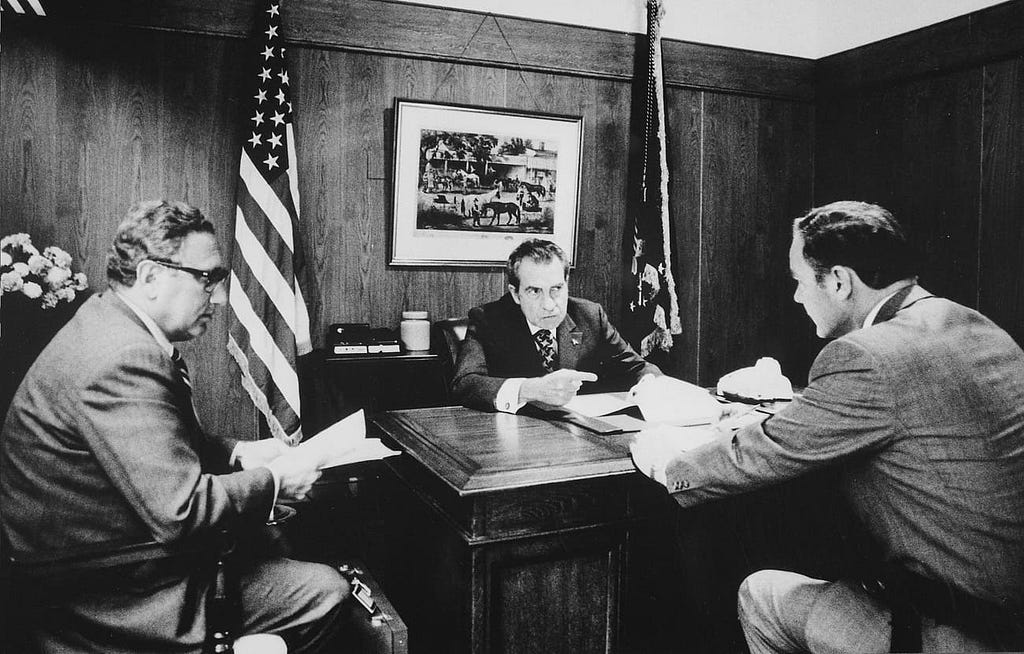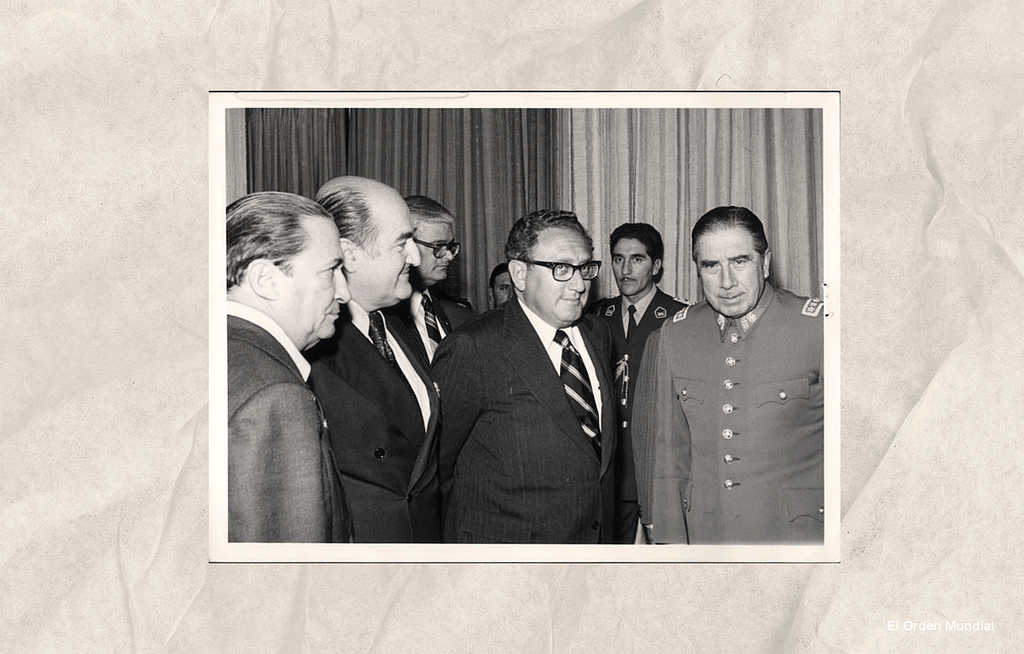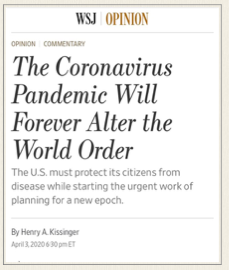Henry Alfred Kissinger (1923–2023) was an American politician and diplomat of German-Jewish origin who held the positions of National Security Advisor and Secretary of State in the 1970s. Kissinger was United States Secretary of State and National Security Advisor in the 1970s, and the great strategist of American foreign policy during the Cold War.
Kissinger defined United States foreign policy from the mid-20th century and influenced it throughout this century. His career began in the Republican Party. Thanks to his military connections and knowledge, in 1955 he was appointed advisor to the National Security Council and the Security Operations Coordination Board. In turn, he was a consultant to government agencies, such as the Operations Research Office. His ambition led him to become involved with presidential candidate Nelson Rockefeller, who lost to Richard Nixon. Still, Nixon saw his potential and signed him to be National Security Advisor in 1969.
In the following decade, Kissinger more strongly developed his realist vision of foreign policy. Political realism is his starting position, in which he maintains that international stability is achieved with the balance of powers between States, each fighting to defend their national interests. In the search for this balance, governments must collaborate and ally with each other, which generates balance and facilitates international stability. However, Kissinger defended that States should not introduce ideology and morality, because they can damage stability and prevent it from being consolidated.
As National Security Advisor until 1975, Kissinger made sure he was indispensable to Nixon and American politics. He became involved in all state affairs, in such a way that at the end of his term he was one of the most powerful personalities in the country, and with the most influence in the world. Nixon was re-elected in 1972 in part thanks to the support of Kissinger, so he appointed this secretary of state in 1973. After Nixon’s resignation in 1975 due to the Watergate scandal, he continued in office until 1977 under the mandate of Gerald Ford.
During these years in which he held senior positions in the direction of US international policy, Kissinger focused on applying his realist thinking to American foreign policy. He sought to reduce tensions in the Cold War by getting closer to the USSR and Mao Tse Tung’s China (remember the Ping Pon policy of that time). As a result, Washington and Moscow signed agreements such as the Anti-Ballistic Missile Treaty to limit their nuclear arsenal, and the United States established relations with communist China. In turn, Kissinger promoted mediation in the Middle East to reduce Arab-Israeli tensions after the Yom Kippur War of 1973, and defended the United States’ exit from the Vietnam War. For the latter he received the Nobel Peace Prize in 1973, a controversial award in which even two members of the delivery management resigned. These were the main lights of his time in the American government.
His legacy is debatable and discussed throughout all this time. “He was one of the most destructive secretaries of state in the modern history of this country,” said Bernie Sanders in the 2016 Democratic Party primary presidential debate. The candidate reacted this way after his rival, Hillary Clinton, proudly proclaimed that Henry Kissinger applauded her work as Secretary of State under Barack Obama. In the following days, the media reported at length on the controversy surrounding the historic National Security Advisor and Secretary of State in the Cold War.
Despite everything, almost forty years after leaving his official positions, Kissinger reappeared strongly in American politics, a sign of his profound influence on the country’s history. Nearly every president since Dwight Eisenhower in the 1950s has sought his opinion on foreign policy.
Outside the United States, his books, his articles published in the press, were followed by leaders around the world, such as the one published in April 2020 by the Wall Street Journal in which he advocated protecting American citizens from the disease at the same time that he proposed planning a new global policy for a new era.
In the WSJ article on the coronavirus pandemic, it established three priorities:
* First, shore up global resilience to infectious diseases.
** Second, strive to heal the wounds of the global economy.
*** Third, safeguard the principles of the liberal World Order.
And he concluded: “ The world’s democracies need to defend and sustain their Enlightenment values. A global retreat from the balance of power with legitimacy will cause the Social Contract to disintegrate both nationally and internationally. However, this age-old question of legitimacy and power cannot be resolved simultaneously with the effort to overcome the Covid-19 plague. Restraint is necessary on all sides, both in national politics and in international diplomacy. Priorities must be established.
We move from the Battle of the Bulge to a world of growing prosperity and greater human dignity. We now live in an epochal period. The historic challenge for leaders is to manage the crisis while building the future. Failure could set the world on fire”.
Thanks to his successes as Secretary of State, Kissinger became an influential figure, advising every American president since then. He had an important media presence, in addition to having published books and memoirs and directing his own consulting firm. Thus, his political realism and his policies have shaped the foreign policy of the United States for decades, as well as its interventionism and its conception of national security. However, he has also been accused of war crimes and human rights violations. He died on November 29, 2023 at the age of one hundred.
Sources: EOM




Comments